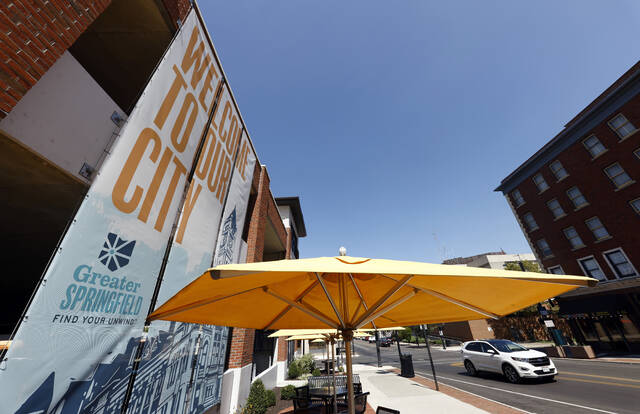Just about all that can be said has been said about Donald Trump’s debate performance last week. But people can’t stop talking about his bogus claim that Haitian immigrants in Springfield, Ohio, are eating their neighbors’ dogs.
The next day, The Washington Post ran a story with the headline, “Anatomy of a racist smear: How false claims of pet-eating immigrants caught on.”
“A Midwestern town grappling with the fallout from an influx of Haitian immigrants became a focal point for racist and xenophobic memes this week after Trump’s running mate, Sen. JD Vance (Ohio), claimed Monday that in Springfield, Ohio, people ‘have had their pets abducted and eaten by people who shouldn’t be in this country.’ ”
As the Post described it, the false claim “gained momentum online with neo-Nazis and became Donald Trump’s message from the presidential debate stage.” Once it was broadcast to 67 million debate viewers, the damage was done.
And what about the Haitian immigrants whose lives are now harder and more dangerous? Who are they and why are they in Springfield? They are our parents and grandparents and great-grandparents. They are in Springfield for the same reasons all of our ancestors came to America: to escape oppression, to escape violence and disease, to protect and save their children, to make a better life.
They are in America legally. They have been granted protective status because of the chaos and violence in Haiti. They work for local businesses, and they have revitalized parts of the local economy. Nearly 20,000 of them have settled in Springfield, many drawn there by others who came first.
Just like my own grandparents, they look different than many Americans, mostly because they are darker. Their food smells different, they don’t speak the language, they often don’t know how we do things here and they wear strange clothes. And some people think they might be up to no good.
Luigi and Angelina, my grandparents from Southern Italy, were part of a massive wave of Italian immigrants, and just like the Irish before them and the Eastern Europeans and others from around the world, they came here improve their lot while building a better America. They did all of that — mining coal, making steel, planting crops, fighting for freedom around the world. It is the old American story.
Communities then had all of the problems that can be expected with any sudden surge in population, the same problems occurring today in Springfield. Social services were stretched, housing was hard to find. But it was sorted out in time.
At a public meeting in Springfield hours before the debate, Nathan Clark spoke about the death of his 11-year-old son, Aidan, who was killed last summer when an unlicensed Haitian driver collided with his school bus. It was an accident, but it seems to have been the start of the current trouble.
Nathan said, “I wish that my son, Aiden Clark, was killed by a 60-year-old white man. I bet you never thought anyone would say something so blunt, but if that guy killed my 11-year-old son, the incessant group of hate-spewing people would leave us alone.
“They make it seem that our wonderful Aiden appreciates your hate, that we should follow their hate.”
As for those who were using his son’s death to promote their political agenda, he had one word: reprehensible. I have a word, too: un-American.








